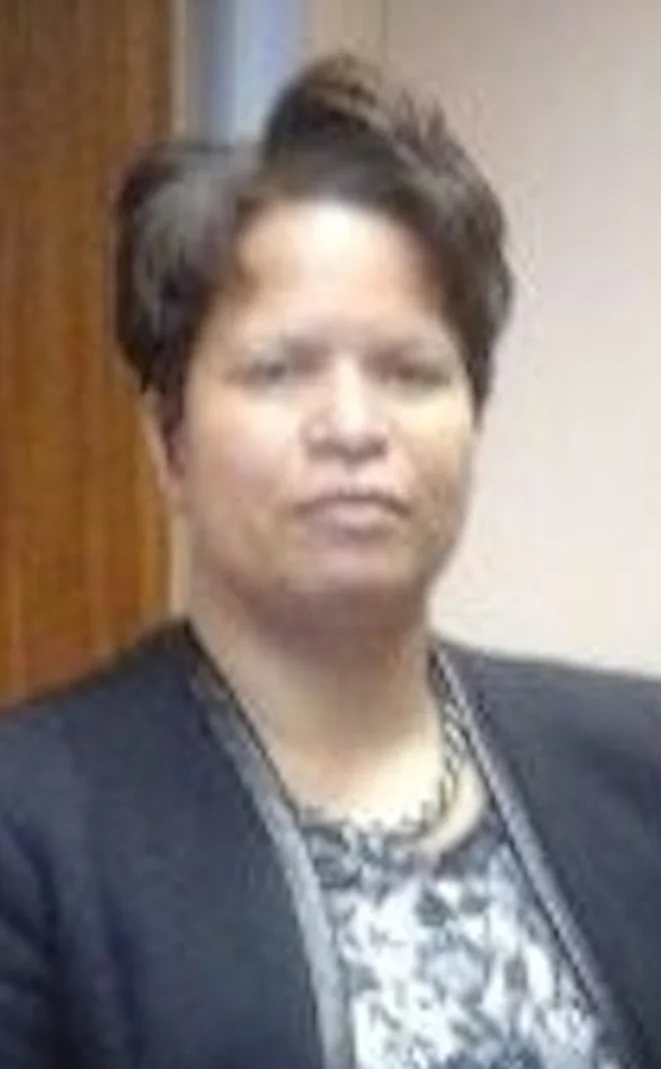Former Wing Commander Sophy Gardner
““Having children would have been impossible with my deployments and hardly any of the women I knew managed it either””
Former Wing Commander Sophy Gardner. Personal photo supplied by Sophy Gardner
Royal Air Force (RAF) veteran Sophy Gardner is not yet 50 but has already had four distinct lives: doctoral student, politician, entrepreneur and wing commander. Currently a doctoral student at Exeter University, the PhD she hopes to submit by autumn 2019 on the subject of air power and politics should open the route to her fifth life in academia.
Sophy is, as she describes herself, the “black sheep” member of the military in a family of lawyers where “Mum wouldn't even let me have water pistols as a kid!”. She always wanted to be a military pilot but was told by careers advisors it was impossible. Even British Airways was not hiring female pilots in the early 1980s. So she went to Newnham College, Cambridge where she gained a first-class honours degree in geography in 1991. “I think going to an all-women’s' college was important for my future because it meant that for three years I was in a place where it was normal for women to succeed and lead.” She enrolled in the University Air Squadron and learned to fly and then half way through her time at university the RAF, finally, opened its doors to women pilots. “I think that was largely because they were short of pilots,” she laughs. She regrets that although the RAF “has really changed” regarding the jobs it offers women since she joined “there are still very few women pilots.” Why? “I think a lot of it is about seeing examples,” she says thoughtfully. “If you see women in a job then you know it's possible but I've come across schools and career advisers recently who still didn't know that girls could be pilots!”
In her 20 years in the RAF Sophy became the first woman to hold every job she had, from running flight operations on an aircraft carrier, to head of the RAF's transport and refuelling operations squadron, to her final job as head of the operations wing at RAF Valley on the island of Anglesey in Wales.
“My job was to keep the airfield open and operating, to ensure that all IT systems functioned, that our intelligence operations were smooth and, above all, to ensure safety.” She's proud that under her command “we had no accidents.”
Sophy pauses to reflect when I ask if she had any specific problems because of her gender. “There are so many, I'll have to think of one that isn't so personal people might recognise themselves!” She recalls that “some of the men who were in their 40s and 50s when I was in my 20s completely disagreed that women should be allowed to fly, but my mates were fine. I was just one of them.” At the end of her first week in her first squadron, where she was the only woman, her boss gave her a bag of washing to do. “Of course, I refused,” she laughs, still unsure if he was being serious or not. More troubling was when on her way to Iraq in 2003, one of her colleagues became quite adamant that a woman could not do the job she was being deployed to do and told her he was “determined that I be sent home.” Not only was she not sent home, but was congratulated on a job well done and the man in question had the grace to admit that he'd been wrong. “But I think if you'd asked me that question seven years ago when I was still in the military I'd have given you a different answer, along the lines that all was well. Many of the women I know who are still in the military say all is fine but it's with hindsight that I realise some remarks were way out of line,” she says.
She'd joined the RAF with the firm intention of becoming a pilot. After completing her officer's training course at RAF Cramwell, she moved on to learning basic combat and manoeuvre flying, selected for the fast jet training on a Hawk. “Unfortunately I failed the very last hurdle: the tactical weapon phase.” Although she could have converted to another aircraft, a personal tragedy decided otherwise and she stopped piloting. “You know, once you've flown a Hawk at 500mph, flying a civilian aircraft at 100mph is not very exciting,” she tells me during our Skype exchange. Because she had plenty of time on her hands whilst awaiting other training courses, she returned to Cambridge to do a MPhil in European Studies where she investigated how air power is used in peace-keeping operations.
Personal photo supplied by Sophy Gardner
Sophy saw frontline action in Congo, Iraq and Afghanistan. She concedes that she was entirely focussed on her career between the ages of 25-35. She never bore any children but now enjoys the company of her partner's. “Having children would have been impossible with my deployments and hardly any of the women I knew managed it either,” she tells me.
She resigned from the RAF in 2011 to become more involved in the Labour Party that she'd joined in 2003. First, however, she founded her own company handling media and public relations for military charities and doing events management. She was then chosen as Labour's candidate for Gloucester in the UK's 2015 general election where she came second. How does she reconcile her military background with a left-wing, generally anti-militarist party?
“The whole ethos in the military is about teamwork, not the individual. There's nothing in a military operation that you can do on your own. It's collective, and that's much more Labour than Tory,” she explains, adding soberly that “most ex-military people don't like war because we've seen it up close. I probably care more than most that we don't get involved in useless wars.”





